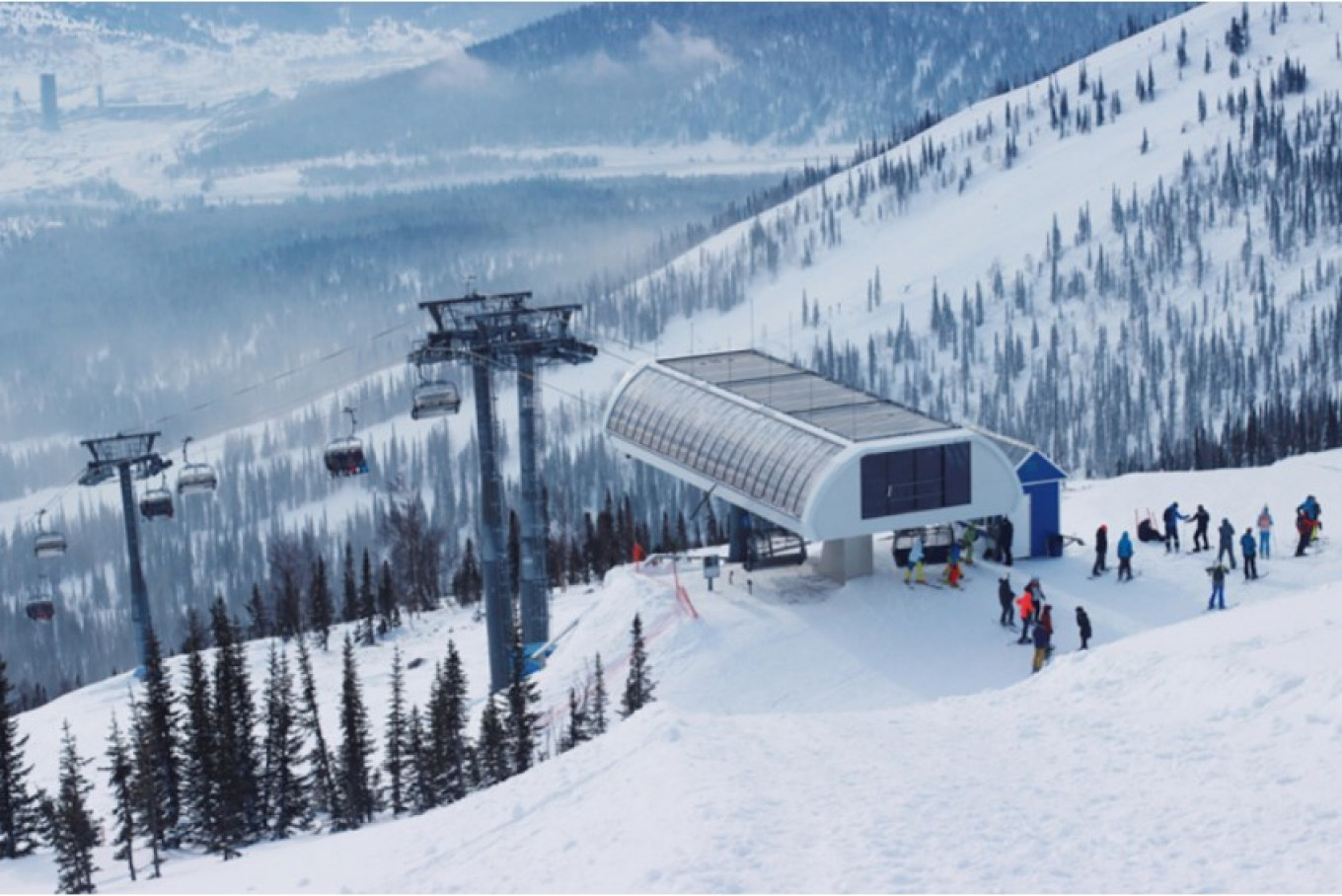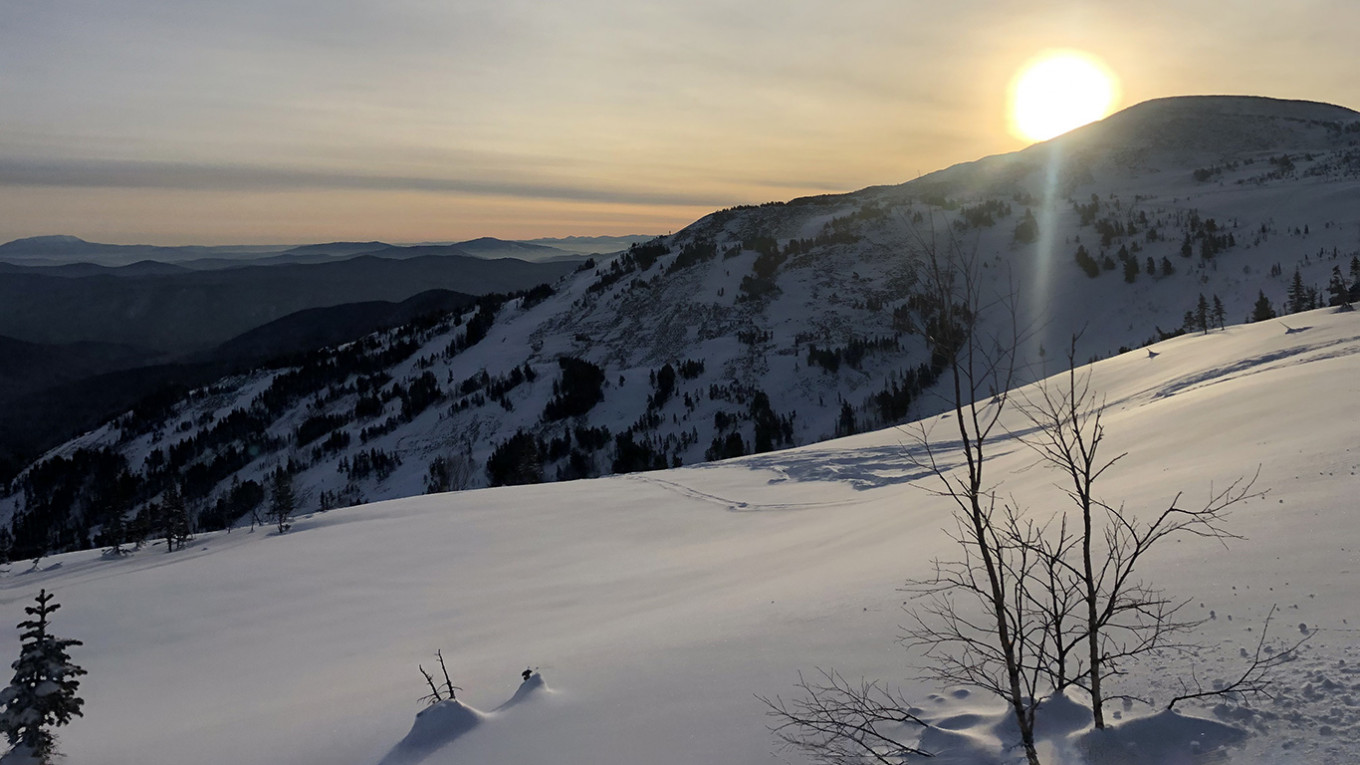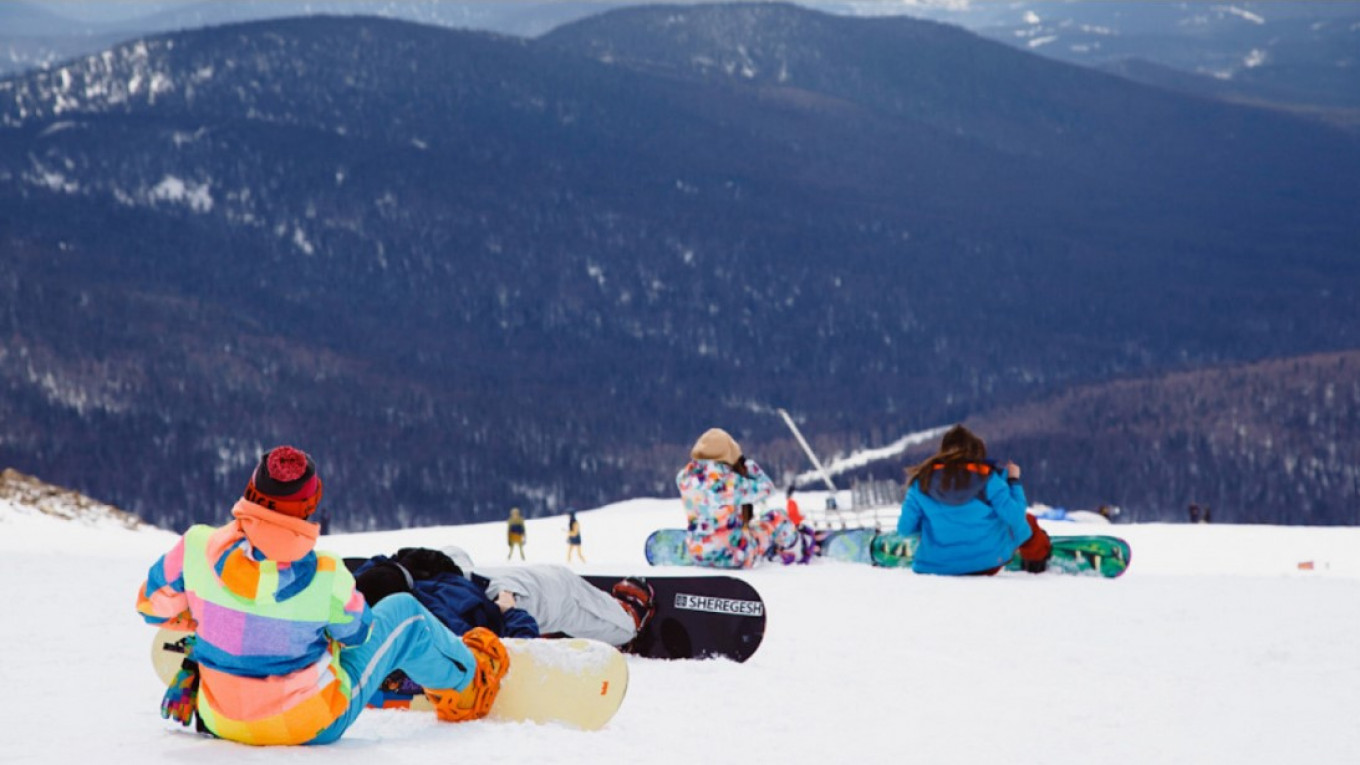Siberia is not generally known as a holiday resort.
In tsarist and Soviet times, Siberia was where criminals and political convicts were sent, and it was also a region of rich natural resources. In 1912 the Sheregeshev brothers discovered iron ore in the mountainous region of Gornaya Shoriya to the south of present-day Kemerovo. At the time, the area was populated by Shors, a Turkic ethnic group. Two years later a settlement was founded, named Sheregesh after the explorers. The mine they opened is still bringing out iron ore, and on a clear day you can see smoke from the mine’s chimney rising up into the sky.
Until the 1980s there was no real infrastructure for skiing here — just the mine and a maximum-security prison, now closed. But in 1981 Sheregesh authorities built a ski resort on the mountain for competitions between Soviet republics, and the slopes began to draw some visitors. In recent years it has expanded and drew 1.3 million vacationers during the 2019-2020 season.

The mountains here are not high — at 5,150 ft (1,570 m) they are much lower than the peaks in Sochi, let alone Elbrus (18,510 ft).
The lure is the snowpack: seven to eight feet, and even more in mid-winter. There are 20 miles of groomed ski runs for different levels, with occasional fields of powder right from the ski lifts.
There is little avalanche danger and snow’s plenty, which makes this place a mecca for freeriding — going off-piste for deep snow (powder).
Freeriding is not for novice skiers: there are dangerous places, like fields of large boulders or tree-covered slopes. And these gently sloping mountains have a dark side too: they can get bitterly cold and windy. It’s easy to lose direction when freeriding by yourself, and you don’t want to have to walk home at twilight in waist-deep snow with a dead cellphone battery.
Seasoned freeriders opt for catskiing. The full-track snowcats that groom the slopes have been upgraded to carry people in their cabin. Guides use them to take skiers and snowboarders far away to let them slash untouched snow.

The overwhelming majority of skiers come from Siberia and the Urals (about 80%). But this year the slopes have been filled with Russians from all over the country as coronavirus restrictions kept European resorts out of reach. Over the recent long weekend to celebrate Defenders of the Fatherland Day, Sheregesh welcomed a record 51,500 tourists.
Sheregesh opens earlier and closes later than other Russian ski resorts. The season is November to May, but beware: in midwinter it is really cold — as low as -25°F.
In April thousands of skiers and sun-lovers invade the slopes in zebra costumes and bikinis for the Grelka Fest, one of the biggest party weekends on the calendar.
If you want to make a trip, take a four-hour flight from Moscow to Novokuznetsk. From the airport, a minivan ride to the resort takes another three hours.
Like many other major Russian ski resorts, Sheregesh was designed to host big events, not to draw skiers and tourists all winter. So there are resort hotels and a town, but the twain shall almost never meet.
For a comfortable stay, book a room in one of dozens of large and small hotels built on the mountain or nearby, many with pools, saunas, and other resort amenities. The cheaper accommodations are in town: guest houses, small hotels, cottages and flats. However, there are few restaurants and bars in town and no public transportation connecting the settlement and the ski resort three miles away, and so skiers must use cabs. Taxi drivers hike fares on cold days or quit when the weather is bad. No major taxi apps work there.
In the evenings, the bars, restaurants and clubs in the big hotels near the resort are the place to be. For a day off the slopes, there are dogsled rides, helicopter excursions and Yeti hunting in the nearby Azass Cave.
For more information about Sheregesh, see the official site here.
A Message from The Moscow Times:
Dear readers,
We are facing unprecedented challenges. Russia's Prosecutor General's Office has designated The Moscow Times as an "undesirable" organization, criminalizing our work and putting our staff at risk of prosecution. This follows our earlier unjust labeling as a "foreign agent."
These actions are direct attempts to silence independent journalism in Russia. The authorities claim our work "discredits the decisions of the Russian leadership." We see things differently: we strive to provide accurate, unbiased reporting on Russia.
We, the journalists of The Moscow Times, refuse to be silenced. But to continue our work, we need your help.
Your support, no matter how small, makes a world of difference. If you can, please support us monthly starting from just $2. It's quick to set up, and every contribution makes a significant impact.
By supporting The Moscow Times, you're defending open, independent journalism in the face of repression. Thank you for standing with us.
Remind me later.






